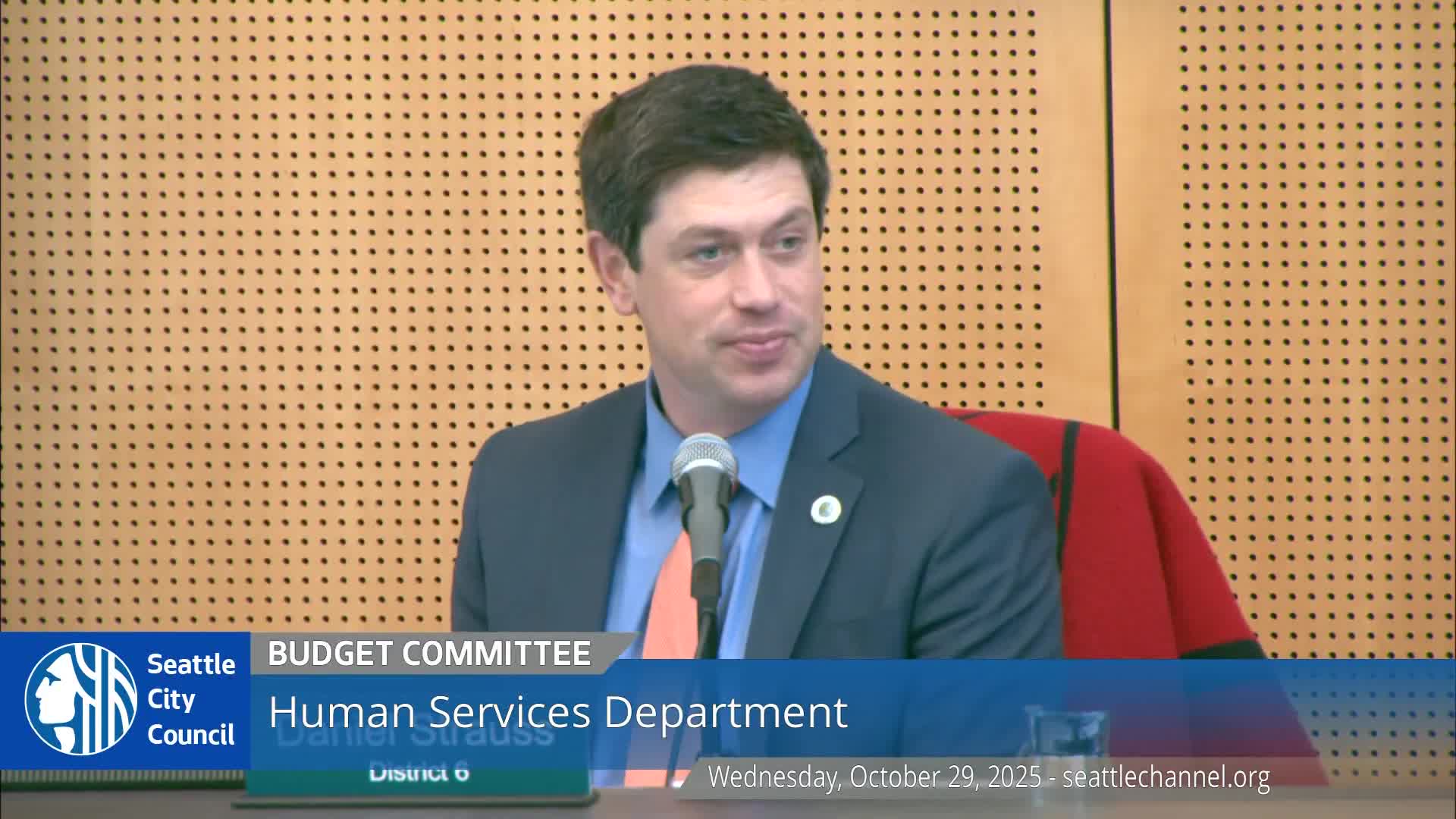Committee reviews human-services amendments including Thunderbird Treatment Center, sexual-assault services and senior supports
Get AI-powered insights, summaries, and transcripts
Subscribe
Summary
Committee members advanced a broad set of human-services budget amendments and statements of legislative intent on Oct. 29 addressing behavioral health bed capacity, survivor services, senior and food programs, and targeted community providers.
Committee members advanced a broad set of human-services budget amendments and statements of legislative intent on Oct. 29 addressing behavioral health bed capacity, survivor services, senior and food programs, and targeted community providers.
Sponsors highlighted HSD 50, a request to increase funding for the Seattle Indian Health Board’s Thunderbird Treatment Center by $2.2 million one-time to close an identified capital and program gap. Council member Juarez said the Thunderbird project would open a 92-bed residential substance-use-disorder treatment facility (including 15 dedicated beds for pregnant and parenting adults, with allowance to bring two children under age 5), and that the center would serve additional behavioral-health patients annually once operational. Juarez and supporters noted the center’s fundraising and the role of culturally based treatment services.
The committee also considered items to sustain and expand survivor and prevention services. HSD 61 proposed a one-time $500,000 allocation to the King County Sexual Assault Resource Center (CASARC) to support advocacy, therapy and prevention at a time of funding instability; HSD 62 would add $1,000,000 ongoing to the gender-based-violence services envelope to protect and expand services as federal and state funding streams shrink. Sponsors said gender-based-violence programs provide legal advocacy, court accompaniment, trauma-informed medical care and confidential shelter that directly reduce later harms such as homelessness and behavioral-health crises.
Other HSD items discussed included HSD 42 (a $350,000 request to complete historic repairs at the Monterey Lofts building operated by Chief Seattle Club, enabling additional behavioral-health and housing services), HSD 47 (a $500,000 ongoing increase for city-funded senior centers), HSD 52 (a $1.25 million request to expand OrcaPOD mobile opioid treatment outreach beyond downtown), HSD 51 (a $100,000 one-time request to add a day of food delivery for low-income housing at Magnuson Park) and smaller grants for targeted community providers such as Lavender Rights Project and Tubman Center for Health and Freedom. Sponsors repeatedly cited federal funding cuts and the need for locally directed investments to maintain services.
Cosponsorships were recorded for many HSD items during the session. Several sponsors emphasized that some programs face acute shortfalls and that proposed city funds would preserve staff and service capacity; no final votes on the listed HSD CBAs were recorded in the Oct. 29 session.
